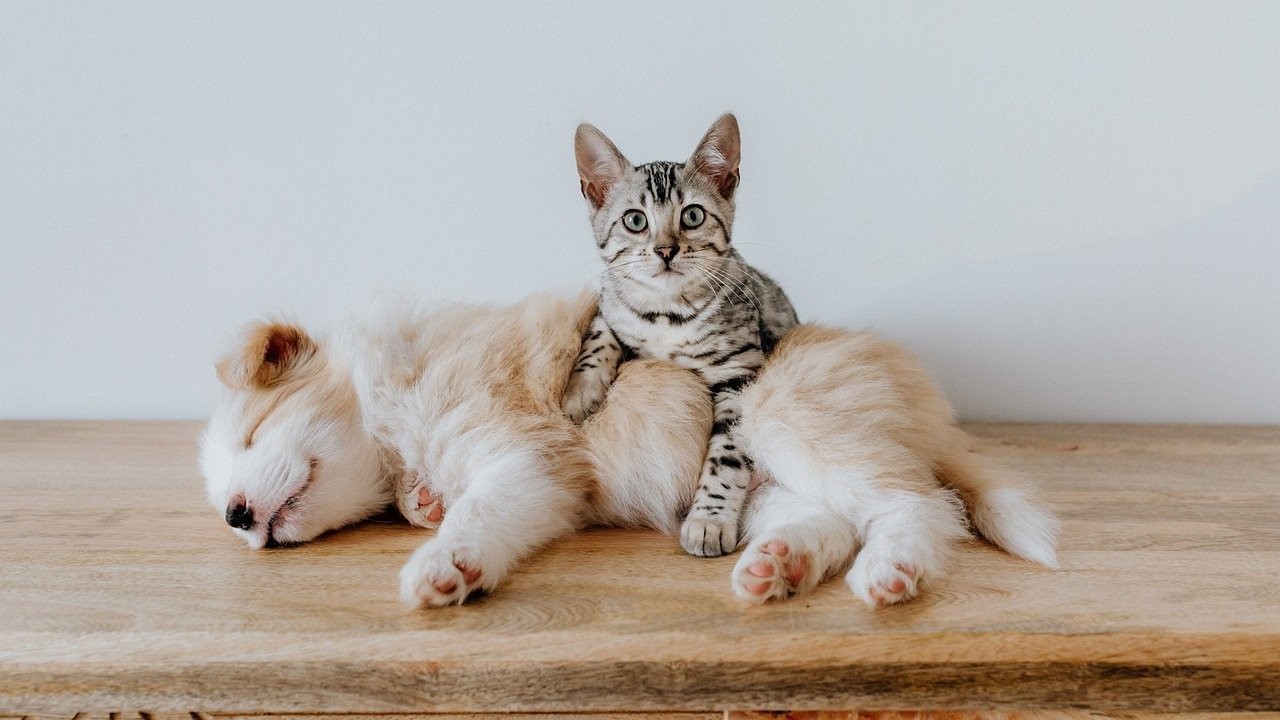How pets help older adults stay healthy and connected

Are you thinking of getting a pet for yourself or a friend who’s over 65? Having a cat, dog or bird in the house can help older people stay happy and healthy. Even a tank of fish comes with benefits.
The health benefits domesticated animals bring to humans have been widely researched. Scientific studies show that spending time with pets can produce positive physical and emotional responses across all age groups. This is particularly true for older people living independently. The International Federation on Ageing says “Pets are associated with increased self-esteem, life satisfaction and positive moods.”

The benefits of pet ownership later in life:
Most of us have had a beloved pet or two in our lifetime, but with the demands of work and family, you may not have added a furry, feathery or finned friend to your household for some time. If you’re thinking about a new pet, here’s why it could be a good idea.
Better overall cardiovascular health. Pet ownership, especially having a dog or cat, is associated with a decreased risk of cardiovascular disease. Nobody’s pinpointed a clear cause and effect relationship between the two, but it’s clear that pet ownership can be part of an overall strategy to lower the risk of heart disease.1,2
Less risk of heart attack. Owning a cat can mean a decreased risk for death due to MI (myocardial infarction).2 Researchers reported that “acquisition of cats as domestic pets may represent a novel strategy for reducing the risk of cardiovascular diseases in high-risk individuals”.
Lower blood pressure. Several studies have shown that dog owners have lower blood pressure, possibly because having a pet has a calming effect and because dog owners tend to get more exercise. The power of touch seems to be part of this ‘pet effect’.1
Better mental health. In a survey of pet owners, 74% of pet owners reported mental health improvements from having a pet, and 75% of pet owners reported a friend’s or family member’s mental health improved with pet ownership.3 This benefit applies at any age.
Maintenance of fitness. Having a dog gives you a reason to get daily exercise. Dog owners are 54% more likely to meet recommended levels of physical activity.4 The bending and kneeling associated with pet ownership could also be helpful for maintaining range of movement and agility.
The chance to meet more people. Walkies time is a chance to interact with other people, usually when your pet meets theirs. Taking part in a puppy school training course is another opportunity to meet new people.
Feeling needed. Humans need to feel needed, so owning a pet that needs to be fed, exercised, cleaned and loved gives older people a reason to keep going.5
Companionship. The emotional and companionship benefits of having a pet are significant. After all, dogs didn’t earn the moniker of ‘man’s best friend’ without good reason. Having a pet also gives you something to talk about with friends, family and caregivers.6

Be practical. Consider the type of home you have and the style of life you lead. If you have good mobility, lots of time on your hands and a patch of lawn, a dog could be the way to go. If you’re less mobile, work for a few days each week or like to go away for weekends, a cat might be a better choice. There are other options too, such as a caged bird, a rabbit or a tank of fish.
Choose a pet that matches your personality. When you’re choosing an animal, think about the character traits you want. If you want a cuddly cat, you won’t want to select a kitten or cat that’s very shy or aloof. If you want to get plenty of exercise, you need a dog that loves to go walking. Just like humans, pets have personalities.
Rescue pets can be great, but they may arrive with problems. It’s wonderful if you can re-home an unwanted animal, however you need to make sure their previous life experience doesn’t impact on your life. For example, some dogs can be aggressive towards bikes, other dogs or people, because of how they were raised (or not raised). Always ask for a one month trial if you want to adopt a rescue or second-hand animal.
Consider breed characteristics. If you’re keen on a specific breed of cat or dog, do some research about the breed’s traits. Also investigate whether the breed you’re interested in has any genetic health issues. Consider talking to your local vet about recommended breeds and animal health problems before you commit to a kitten or puppy.
Look up the animal’s siblings. Social media channels are handy for background checks on your potential pet. Most breeders these days use Facebook to connect with new owners. Take a look through the images to see how your pet’s relatives look and behave. Facebook also gives you the potential to connect with other owners associated with the breeder you are considering.
2 US National Library of Medicine National Institutes of Health.
3 Anxiety and Depression Association of America.
4 Time.
